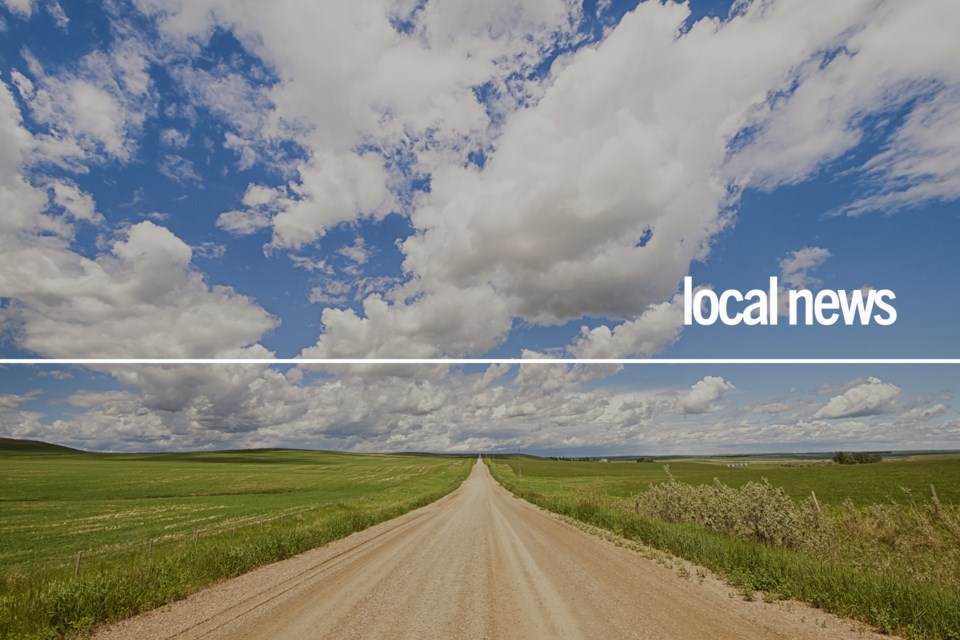ST. PAUL - A group known as “No to CO2” is speaking up against a large-scale carbon capture project that is being proposed in the Lakeland region.
"No to CO2" describes itself as a grassroots, non-partisan group, "uniting of friends and neighbours concerned with protecting their land and quality of life and defending the public interest," according to documents from the group. The group is planning to host public meetings on Aug. 1 and 2, but one of its first steps was to meet with County of St. Paul council to have their voices heard and ask questions.
Amil Shapka and Trevor Pilipchuk, both St. Paul-area residents, were in attendance at the July 25 County of St. Paul council meeting, representing "No to CO2."
"Mostly, we're looking for information," said Shapka. He acknowledged that it is "very un-Albertan" to be opposed to a pipeline, but the pipeline proposed by Pathways Alliance is not like other pipelines, since it would carry CO2.
Pathways Alliance is group made up of six of the largest oil sands producers in Alberta - Canadian Natural, Cenovus, ConocoPhillips Canada, Imperial, Meg Energy, and Suncor. The project and organization were highlighted during the recent Bonnyville Oil and Gas Show (BOAGS).
The group's primary objective is the decarbonization of the oil and gas industry and reaching net zero greenhouse gas (GHG) emissions by 2050, said Kendall Dilling, president of Pathways Alliance, during a presentation at the BOAGS opening ceremonies on June 20.
As previously reported by Lakeland This Week, the group plans to construct a major carbon capture and storage system line connecting a carbon storage hub in Cold Lake to oil sands facilities in the Fort McMurray, Christina Lake and Cold Lake regions. But, new information confirms that plans go beyond the Fort McMurray and Cold Lake regions.
During the delegation, County of St. Paul CAO Sheila Kitz confirmed that a test site had been set up along Horseshoe Bay Road, within the County of St. Paul. That site, according to Kitz, has proven to not be a suitable site for carbon capture.
Kitz also noted that a presentation took place on June 20 in Bonnyville by Pathways Alliance for area stakeholders. The presentation provided an introduction to the project, and an overview of who is involved.
The timeline given for the project to be coming to the County of St. Paul area was 2027-2030, said Kitz.
The CAO also stated that the County of St. Paul does not typically get notification about projects happening in the oil and gas industry. Kitz did state that administration had reached out to the communications team with Pathways Alliance to try to answer some of Shapka’s questions, prior to the delegation.
It was noted that at this point, the project is working on feasibility studies and the design of the potential project.
Kitz stated that the County of St. Paul does work alongside industry when Shapka asked about emergency services. The municipality takes part in emergency exercises done by the oil and gas industry, for example.
Shapka asked if the County of St. Paul or its residents will see any benefit to the project coming through the area.
Kitz responded, saying if carbon capture turns out to be a way to reach net zero, then Pathways Alliance felt it could encourage other industries to come to Alberta. There could also be possible tax revenue in the future, noted the CAO.
When asked where concerned residents could bring their concerns, Kitz encouraged Shapka to work through the local MLA. Also, public consultations are expected to take place with Pathways Allaince in 2024.
“We’re not necessarily looking for a fight here,” said Shapka. He noted that the public information sessions being held by “No to C02” this week are being done to gauge the public’s response to the project locally.
“It’s largely unproven technology,” said Shapka. He included a variety of examples and research links in his presentation to County council on Tuesday.
“I can’t see the County residents embracing this,” said Shapka.
Kitz said she personally had not seen a map of the proposed project yet, while Pilipchuk noted he had seen a map at one point. Residents have also reportedly been asked for permission to survey land to find suitable sites, he said.
“So, the landowners have more info (than the County of St. Paul),” said Kitz, in response.
As discussions wrapped up, council agreed to accept the delegation as information.
"No to CO2" is holding public information sessions on Aug. 1 at Lac Bellevue Hall from 7 to 8:30 p.m. and on Aug. 2 at Flat Lake Hall from 7 to 8:30 p.m.



